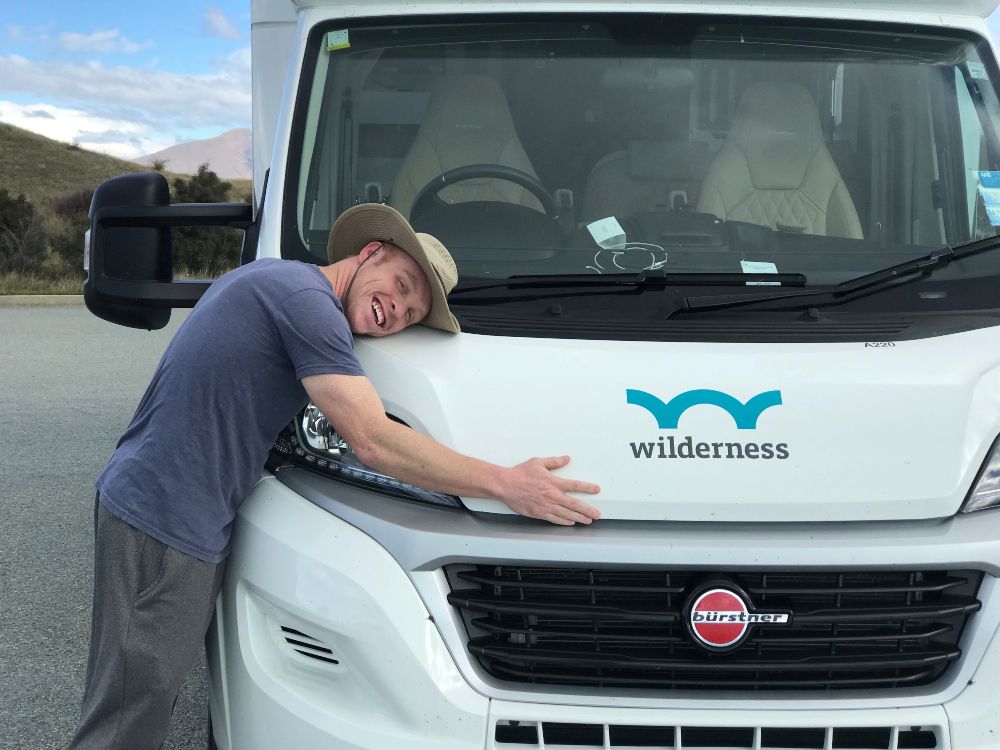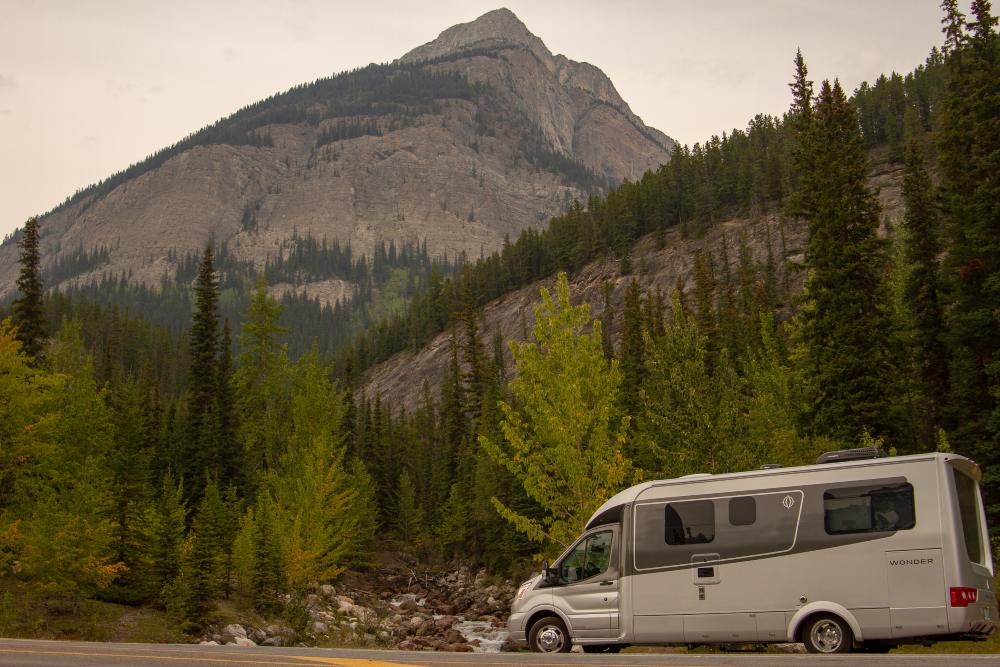6 Reasons Why You Should Always Rent an RV First
- viarv service
.jpg/v1/fill/w_320,h_320/file.jpg)
- Jul 17, 2019
- 7 min read
When we bought our first RV, I had never RVed a day in my life. I didn’t know anything about how RVs worked, what the lifestyle was really like, or how to drive a 29-foot motorhome down the highway.
Which is probably why we flooded our rig after we forgot to dump the grey tank, blew up our propane fridge by parking on unlevel ground, and even once tried to drive away with our stabilizing jacks still on the ground.
There are all total rookie mistakes that could’ve been avoided if we had taken a little extra time to learn about RVs beforejumping into the driver’s seat and heading west.
Today—five years after we used every towel we owned trying to clean up our grey water flood—I tell anyone who will listen to take a week or two to rent an RV before they invest in buying one.
Renting an RV is the best way to taste the RV lifestyle before you commit and the funnest way to figure out what type of RV you really want before you buy.
Here’s why:
1. Trying different RVs makes it easier to figure out exactly what type of RV you want.
My husband and I just sold our Class A motorhome and have been searching for months for something a little smaller to be our next home on wheels. We’ve toyed with the idea of a van, a Class B motorhome, or a Class C. We have rented four different RVs in the past year searching for one to call home and learned a lot about what type of RV I want.
The van we rented? WAY too small. While van life looks awesome and all, cooking, showering, and living in that small of space wasn’t working for us.
The Class C we rented? The length of the RV was perfect and it had all the features we wanted, but the layout wasn’t great. The corner bed was too difficult to climb in and out of.
But the Class B+ with giant windows and the two twin beds that convert into a king? Winner winner!

The most important thing to look for before you buy an RV is a layout that works for you. We cook all the time, so finding a layout that offered enough counter space and an oven for cooking was necessary. Plus, there needed to be enough room around the kitchen so that one person could cook and another person could still move freely around the RV.
While you can look at RV floor plans and photos all day long, you don’t quite know what exactly you want in your own RV until you’re actually living in it. When you search for an RV to rent, think about what’s most important to you.
If you want a big bed in a small rig, you’ll want to find an RV with a convertible bed so you can have floor space during the day and room to sleep at night. If you want scenic views all around you, you’ll want to find a coach with plenty or windows or perhaps a big windshield. If you plan on spending all your time outside, you’ll want an RV with a great awning or perhaps additional features like a bike rack, large storage bays for your toys, or an outdoor TV.
Then, once you’re in your rented RV and enjoying life on the road, you can find out what features really matter and which ones you can live without.
2. You can use a peer-to-peer RV rental company to try out the exact RV you want to buy.
If you rent from a major company like Cruise America or El Monte, you’re going to be driving a standard, boring, made-specifically-for-renting RV.
But if you’re looking to rent an RV as a way to figure out what type of RV to buy, then you’ll want to use a peer-to-peer RV rental company like Outdoorsy or RV Share. These rental companies allow you to rent RVs directly from real RV owners which means you have a ton of rental options.
We used Outdoorsy when we wanted to try out a specific Winnebago layout to see if it was the right RV for us. Instead of just touring the RV at a dealership or taking it for a test drive, we got to spend a week exploring Nevada and Arizona and could experience life in the rig to see if it was the perfect RV for us before spending tens of thousands of dollars to buy one.
📷
3. Learn how all the systems work.
All RVs will run the same types of systems no matter the manufacturer. That means you’ll quickly need to learn terms like black tank, fresh water tank, city fill, FHU, 30 AMP, shore power, and slide-outs.
The best part about renting an RV? Whomever you’re renting from will go over all these systems with you before you even leave the lot. When buying an RV, you might not be so lucky. We signed the paperwork and were handed the keys. Only later did we find ourselves opening every cabinet and drawer searching for the water pump button so we could wash our hands.
The rental company can go over every tank, button, lever, and screen you need to use while you’re in the RV. Since this person owns the RV or works with RVs on a daily basis (unlike some, but not all, RV salesman at a dealership), they’ll be your best source of information for any questions about the rig or even RV-life questions like which local campgrounds they recommend or best routes to your destination.
Plus, some rentals will even have videos or a DVD explaining how different parts of the RV will work so you can reference them if you have any issues on the road.
📷
4. Understand what all the specifications mean and which ones matter most.
62-gallon grey tank? 400 watts of solar? 50 AMP power?
None of these phrases mean much until you’re in an RV using them. While you have your rental, you can test out little things like how often you need to dump your grey and black tanks, what appliances can you run at the same time before tripping the power, and how long your batteries last when you’re not plugged into electricity.
In all of our rentals, we camped overnight without electric hookups to test how long the battery power lasted because in our next RV, we want to spend more time boondocking in remote locations. We quickly learned that we won’t buy an RV that doesn’t have solar panels already installed on the roof (or at least the ability to be installed) because that’s the only way we could get our battery power to last long enough.
While I can read numbers and stats about lithium batteries and watts of solar and amp power all day long, it’s a lot easier to understand how it all works when you can test these systems on a rental. This can save you thousands later if you’re considering upgrading batteries, adding an inverter, or installing solar on your own RV.
5. Test your engines.
Unlike a test drive around the block of an RV dealership, renting an RV really lets you test the power of an engine. Even if two RVs have the same exact engine, they will drive differently because of the variances in the length, size, and weight of the house. Not to mention that once you fill up all your tanks, the added weight will affect how it drives.
Now I won’t pretend to know much about engines, but I do know that some make for a more stressful driving experience than others. Trust me, you don’t want to be in Grand Teton National Park thinking “Can we make it up this 10% grade?”
We drove three different diesel engines in our rentals: Fiat, Mercedes, and Ford. The European diesel engines take a second to get up and go after you press the gas compared to the American engine. In fact, more than once we worried that the engine stalled because it could take two full seconds after putting the pedal to the metal for the motorhome to lurch forward and gain speed. It drove me crazy!
When we drove the Ford Transit engine, we had no such problem. In fact, that’s my absolute favorite RV engine we’ve ever driven because I felt it gave us the most power, handled mountains like a pro, and was perfectly smooth on the road. (I also learned that I prefer a diesel engine to gas!)
If you’re specifically wanting a motorhome, the engine in your rig is a big consideration that will affect other decisions like if you can tow a car. While you likely won’t be allowed to tow anything behind your rental, you can still get a feel for how an engine can handle when you spend a week driving it around.

6. There’s no better way to learn about RVing.
You can learn a lot about RVs from reading books, blogs, and scouring the internet for information. You can browse websites looking at pictures of RVs all day long. You can even know exactly what type of RV you want.
But until you’re trying to back into your campsite at night shouting with your spouse to shine the flashlight more to the left so you can see where you’re going, you don’t have an idea of what RV life will really look like.
In addition to figuring out what type of RV you want, renting an RV allows you to sample the RV lifestyle. Do you like RV parks with their resort style pools and free wifi? Or do you prefer boondocking in the desert without any neighbors?
Taking a week (or two, or three!) to travel in your rented RV lets you test out the lifestyle and figure out exactly what you want your life in an RV to look like.
Can this be your full-time home?
Full-time RVing is easily the best decision my husband and I have ever made. We quickly fell in love with the lifestyle and the adventure of life on wheels. Our RVs become our homes and it’s worth taking extra time to figure out exactly what we want in a new home by renting out a few different motorhomes and taking them for a spin.
This information is for educational purposes. VIARV shall not be responsible nor retain liability for RVer’s use of the provided information. Prior to making any RV service decision, you are advised to consult with an RV professional.







Comments